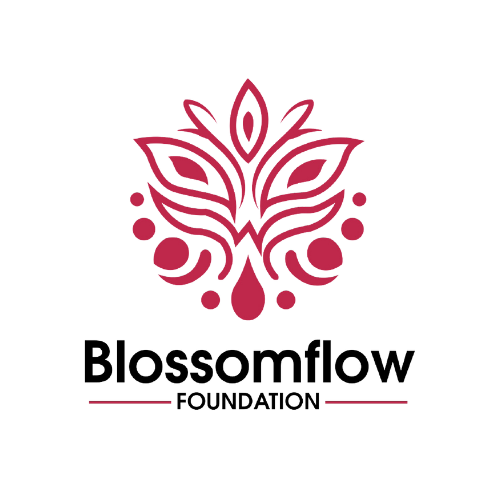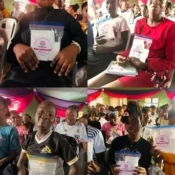
10 Powerful Ways Men and Boys Can End Period Poverty in Nigeria
Period poverty remains a pervasive issue in Nigeria, affecting the ability of women and girls to engage fully in educational and economic opportunities. Tackling period poverty requires comprehensive community involvement, including the crucial role that men and boys can play. By educating males on menstruation, we can diminish stigma and bolster initiatives striving to end period poverty in Nigeria. This blog will explore how male engagement in menstrual health education can drive social change and highlight exemplary community engagement programs within Nigeria.
Understanding Period Poverty in Nigeria
In Nigeria, period poverty not only limits access to sanitary products but also encompasses insufficient menstrual hygiene education and inadequate sanitation facilities. These barriers contribute to a broader context of gender inequality, where myths and stigmas surrounding menstruation can further disenfranchise women and girls. According to UNICEF, millions of girls worldwide miss school due to a lack of menstrual products and education, and Nigeria is no exception.
Educating Men and Boys: A Gateway to Reducing Stigma
Educating men and boys about menstruation serves as a critical step toward normalizing this natural biological process and reducing the associated stigma. Education can empower men and boys to become allies in the fight to end period poverty in Nigeria by:
- Changing Perceptions: Breaking down myths and misconceptions about menstruation that are often prevalent in Nigerian communities.
- Building Support Systems: Encouraging men and boys to support their family members by understanding the importance of menstrual health and hygiene.
- Advocating for Change: Equipping them with knowledge to advocate for menstrual health rights and support the implementation of supportive policies and practices.
Strategies for Men and Boys To End Period Poverty in Nigeria
To enhance the effectiveness of these initiatives, several strategies can be employed:
- Integrate Menstrual Health into School Curricula: Including menstrual health education in the national school curricula for all genders can ensure early and widespread reach. Internal programs like the Blossomflow Foundation’s educational initiatives can serve as models.
- Community-Based Advocacy: Leveraging traditional and community leaders to advocate for menstrual health can enhance cultural acceptance and support.
- Policy Engagement: Encouraging male policymakers to champion the cause and push for legislative changes that support menstrual health initiatives, including funding for menstrual products and facilities.
- Public Awareness Campaigns: Launching campaigns that target men and boys to increase awareness and understanding of menstrual health.
- Workplace Education Programs: Implementing menstrual health education programs in workplaces to educate male employees.
- Peer Education: Training boys and young men to educate their peers about menstrual health and hygiene can end period poverty in Nigeria.
- Support Groups: Establishing support groups where men and boys can discuss menstrual health openly and learn from one another.
- Role Models and Influencers: Engaging male role models and influencers to speak out about the importance of menstrual health.
- Partnerships with NGOs: Collaborating with non-governmental organizations that focus on menstrual health to reach a broader audience.
- Resource Allocation: Ensuring that community resources are allocated to support menstrual health initiatives, including the provision of sanitary products.
The Role of Community-Based Advocacy to End Period Poverty in Nigeria
Community-based advocacy is pivotal in creating a sustainable change. Traditional and community leaders have a significant influence and can be instrumental in shifting cultural norms. Programs that involve community leaders in menstrual health education can break down deep-seated stigmas and create a supportive environment for women and girls. This approach is essential to end period poverty in Nigeria.
Importance of Policy Engagement in Addressing Period Poverty
Encouraging male policymakers to engage with and champion menstrual health can lead to significant legislative and practical support. Legislative changes might include ensuring that menstrual products are tax-free, funding for adequate sanitation facilities in schools and public places, and implementing comprehensive menstrual health education in schools. For more insights, check out the work being done by Global Citizen.
Conclusion
The engagement of men and boys to end period poverty in Nigeria is not just beneficial but necessary for sustainable change. Through education and community involvement, we can transform societal attitudes and ensure that women and girls are not hindered by a natural biological process. This inclusive approach not only aids in combating period poverty but also promotes gender equality and strengthens community bonds. By implementing these strategies, men and boys can play a pivotal role and end period poverty in Nigeria, hence fostering an equitable society.
For further reading on how men and boys can contribute to menstrual health education, read more on here
All Categories
Recent Posts
Why SDG 4 Cannot Be Achieved Without Ending Period Poverty
Tags
Give them a helping hand
Every donation fuels our mission to combat period poverty. Your generosity brings us closer to menstrual equity.
+234-909-482-1642
inquiries@blossomflow.org




